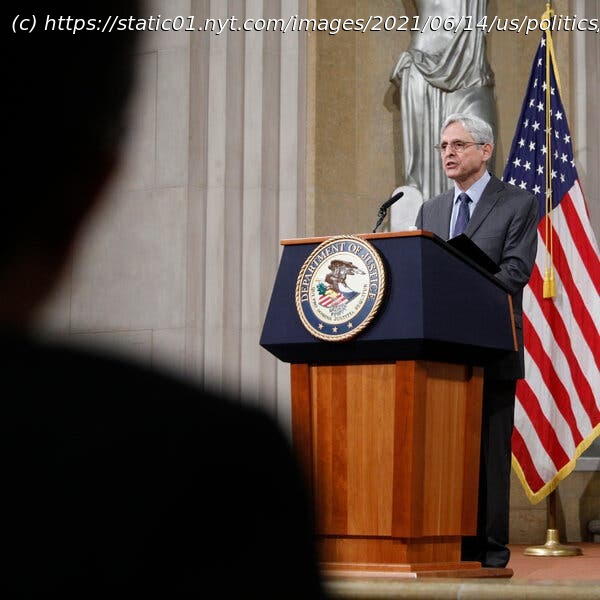Democratic gripes are increasing, as some critics worry that the department is rubber-stamping Trump-era policies.
The political news cycle hit home in rare fashion on Monday as the attorney general, Merrick B. Garland, met with newsroom leaders from The Times, CNN and The Washington Post to discuss how the administration was responding to revelations that Donald J. Trump’s Department of Justice had secretly sought information on reporters and their sources. When a Justice Department gets into the business of seizing reporters’ phone records and trying to track down leakers, while putting gag orders on the news organizations whose records it’s seizing, it’s hard not to wonder about the health of the First Amendment. So with the revelations now public, Mr. Garland vowed to act. Speaking to members of the Senate Appropriations Committee at a budget hearing last week, he pledged that he would institute new policies that were “the most protective of journalists’ ability to do their jobs in history.” In Monday’s meeting, the leaders of the news organizations pushed Mr. Garland to pursue accountability for the administration officials who had worked to target journalists and whistle-blowers; Mr. Garland’s responses were kept off the record. But legal watchdogs and advocates of criminal justice reform say this is far from the only area of concern. They are pointing to a few major areas in which Mr. Garland’s Justice Department has elected to defend Trump-era policies, particularly those orchestrated by former Attorney General William P. Barr. Mr. Garland has stepped up enforcement of civil rights laws, and he is leading investigations into some major municipal police departments suspected of systematic misconduct. He announced last week that he would take aggressive steps to protect voting rights. But on a range of other issues, there are gripes coming from within the president’s own party. Some critics have expressed worry that his Department of Justice was rubber-stamping policies that sought to expand the president’s legal immunities, turn back progressive action on racial justice and restrict immigrants’ ability to enter the country legally. During Mr. Trump’s presidency, Mr. Barr sought to help Mr. Trump try to fight off a sexual assault accusation from the journalist and advice columnist E. Jean Carroll. After she publicly made the allegation, in 2019, Mr. Trump said in an interview from the Oval Office that Ms. Carroll was “not my type,” and that he’d never assaulted her. She then filed suit, accusing him of slandering her. Mr. Barr argued in court that Mr. Trump had been acting as an employee of the federal government when he made the comments, and was therefore shielded from charges of slander and libel. The case was still pending when President Biden took office. And this month, Mr. Garland’s Justice Department lamented Mr. Trump’s “crude and disrespectful” remarks, but it said that his administration had been right to argue that he could not be sued over them. Prominent Democrats had also urged Mr. Garland not to fight a federal judge’s ruling demanding that a classified report that Mr. Barr had requested be made public. Known as the “Barr memo,” the document argues that he should tell the public that Mr. Trump’s efforts to impede the Russia investigation — as lain out in the report by the special counsel, Robert S.






